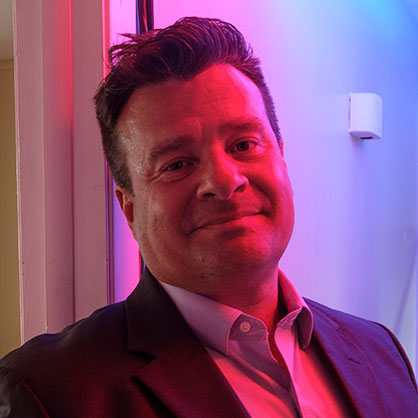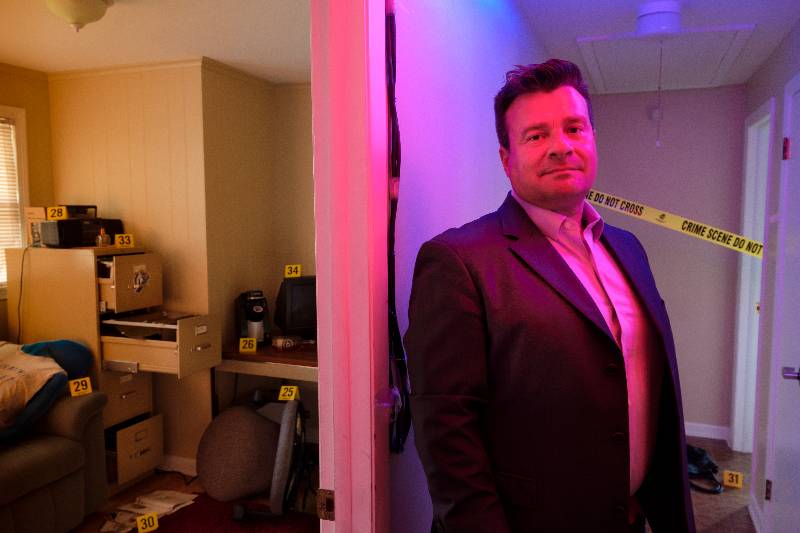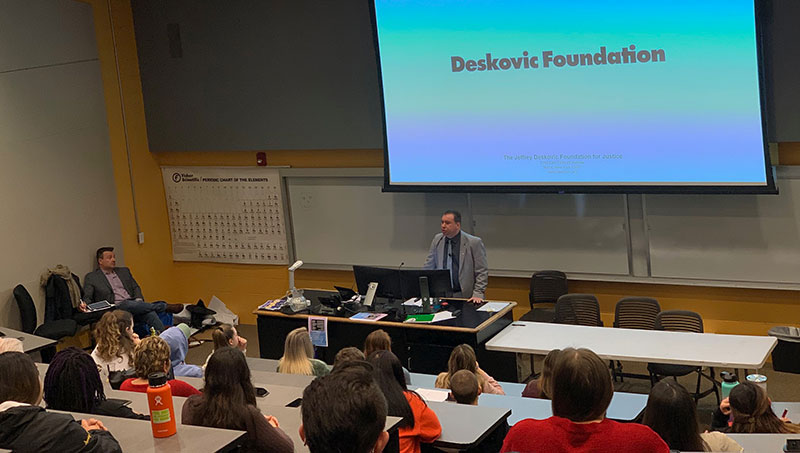In the Media
Fox News: The role of forensic science in solving true crime cases
Peter Valentin, associate professor of forensic science, explains the ‘order of operation’ when it comes to forensic science testing in criminal investigations.

Ph.D., Nanosciences and Advanced Technology, University of Verona, 2022
M.S., Forensic Science Criminalistics, University of New Haven, 2008
B.S., Forensic Science, John Jay College of Criminal Justice, 2001
Peter Valentin combines a forensic science educational background with significant experience in the practical application of his trade as a crime scene investigator. He received his Ph.D. in Nanosciences and Advanced Technologies at the University of Verona.
Naiman, Melissa, A. Karl Larsen Jr., Peter R. Valentin. The Role of the Dentist at Crime Scenes. The Dental Clinics of North America Dentistry’s Role in Disaster Response. 2007.
“Forensic Reconstruction Theory to Practice” Coauthoring chapter of bloodstain pattern analysis. 2019 – present.
“Crime Scene Reconstruction in a Post-OSAC World” Presentation given at American Academy of Forensic Sciences annual meeting in Baltimore, MD. 2019.
In the Media
Peter Valentin, associate professor of forensic science, explains the ‘order of operation’ when it comes to forensic science testing in criminal investigations.
In the Media
Peter Valentin, associate professor of forensic science, discusses how the National DNA Database works by uploading sample information only when associated with a crime.
In the Media
Peter Valentin, senior lecturer of forensic science, discusses if a profile of a murderer is necessary for police to catch a serial killer.
In the Media
Peter Valentin, a senior lecturer of forensic science, discusses the type of evidence authorities need to present to link the murders of four women in Oregon to a possible serial killer.
In the Media
Peter Valentin, a senior lecturer of forensic science, comments on police detectives' use of discarded DNA, such as garbage put out at the curb, which can be taken and sampled from those under suspicion of a serious crime.
In the Media
Peter Valentin, a senior lecturer of forensic science, discusses his forensic science career and the advancements in DNA testing on evidence that have proved innocence or guilt decades after a conviction.
In the Media
Peter Valentin, a senior lecturer of forensic science, comments that bloody footprints found at a crime scene can be used in a homicide case, similar to using fingerprints, but it is unusual.
In the Media
Peter Valentin, a senior lecturer of forensic science, discusses how Forensic Genetic Genealogy (FGG) technology was used to identify a suspect now charged with rape in three cases in Boston.
In the Media
Peter Valentin, a senior lecturer of forensic science, discusses the effort to develop new standards by the Organization of Scientific Area Committees. While the process can be contentious, it's essential to have the right professional standards in place.
The night he taught his final class of the spring semester, Peter Valentin left for New York City, where he spent two weeks serving on the front lines of the coronavirus pandemic.

The Charger Blog
Peter Valentin ’08 M.S. has been named to an American Academy of Forensic Sciences board that puts him at the forefront of overseeing the organizations that accredit forensic scientists from across the country.

The Charger Blog
Since spending 16 years in prison for a crime he did not commit, Jeffrey Deskovic has dedicated his life to helping the wrongly convicted. He visited campus to discuss the impact that mistakes in the criminal justice system can have on the lives of those unjustly accused.